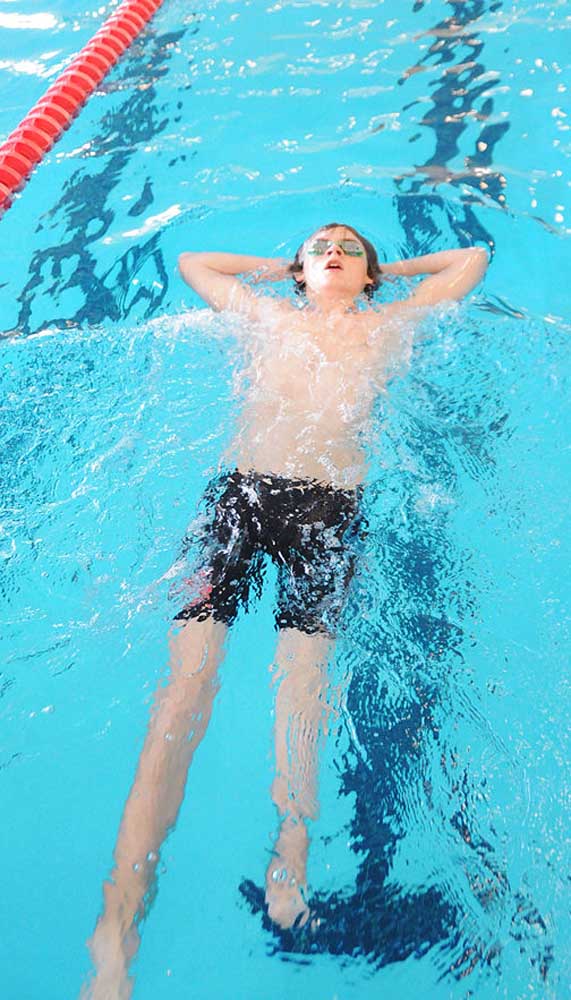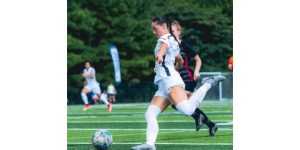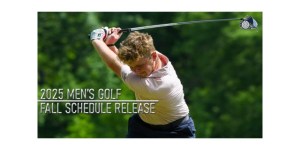A challenge he’ll accept
Published 8:06 am Friday, June 1, 2012

- (Misty Watson/The Daily Citizen)
For the first 11 years of Trey Davis’ life, his body’s left side was six inches shorter than his right side.
Trending
As a result, the Dalton resident also drew the short straw when it came to sports.
But three years ago, he had his left leg amputated from the ankle down, reducing pain and stress on his left side and allowing him to use a prosthesis for better balance and mobility. At the same time, he found a sport in which he has thrived — swimming.
Davis, 14, who recently finished his eighth-grade year at Dalton Middle, swam for the Cougars, and he plans to compete for Dalton High’s Catamounts this winter. He also swims for Carpet Capital Aquatics Club, a year-round USA Swimming program in Dalton, and the club’s summer extension, the Dalton Dolphins, who compete as a recreation league team in the Chattanooga Area Swim League.
Somewhere along the way, Davis became pretty good in the pool, where he doesn’t use the prosthesis. Earlier this month, he came within a split second of moving forward in the process of qualifying to represent the United States on a global stage.
And that dream of making it to this summer’s London Paralympics isn’t over — he’ll have another chance starting today.
Brave decision
Trending
Davis, 14, is the middle child of three boys. His oldest brother, Everett Davis, 21, is currently serving in the Air Force. His youngest brother, Ross Davis, 12, is a Dalton Middle student and, like his older brother Trey, a competitive swimmer.
But Trey was the only one of the three Davis brothers with a chronic bone deficiency.
The femur (thigh bone) in his left leg did not grow, leaving him shorter on that side. The deficiency caused Davis to “walk on his tippy toes” for a while, said his mother, Paula Diamond, and resulted in shattered bones in his foot and no cartilage in his knee.
Still, Davis wanted to play youth basketball and football. But Diamond said league officials had concerns.
“A lot of times growing up he didn’t get to do things because they were worried about the knee and he didn’t have the balance that the other kids did,” she said.
In August 2009, an 11-year-old Davis decided he didn’t want the pain anymore, his mother said. Surgery was scheduled at Shriners Hospital for Children in Greenville, S.C., and he had his left leg amputated “right above the ankle,” his mother said.
“It was his decision,” Diamond added. “He was tired of living in the pain and having to deal with it, so he was the one that said he’d had enough and wanted to go ahead and get the amputation done.”
Davis remembers going to the hospital and waking up just as doctors were injecting an IV.
“It hurt,” he said.
Was he scared?
“Not at all.”
After surgery, Davis began his new life with a prosthetic leg connected to his knee; the lower half of his leg fits inside a sleeve on top of a prosthetic foot. He wasn’t shorter on one side anymore, but there were still some concerns about him immediately participating in athletics.
Charles Todd, who teaches physical education at Dalton Middle, coaches the school swim teams at Dalton Middle and Dalton High in addition to the Carpet Capital Aquatics Club’s Makos and the Dalton Dolphins. He has watched as Davis has adjusted to the amputation and found his place in athletics.
“I had him for P.E. probably the week after he had the amputation surgery,” Todd said. “He wanted to play so bad, whatever we were doing. He wanted to do it and I was like, ‘How about this? Let’s switch your classes and by the next quarter we’ll see about letting you play.’
“Then he got some more balance, and when we do sprints in P.E. and stuff he’s one of the faster kids.”
‘It’s hard’
After the surgery, Davis decided he wanted to try a couple sports. He took a shot at basketball, then football. Nine months after the amputation, swimming still wasn’t on his mind.
Then Todd, who’s also an assistant for the Cougars’ football team, made a suggestion.
“I could see he was a pretty good athlete,” Todd said. “Football would be difficult with the titanium leg. He’s a pretty good athlete, though, but it would be hard for him, and I felt he could go much further in the sport of swimming. There’s just a lot of different things in football.”
Diamond is thrilled her son has found his extracurricular and athletic niche, and it might have been a subconscious passion his whole life.
“When coach Todd asked him to join the swim team, it was a true blessing because he was always one of those kids who in the summer was jumping off the diving board,” she said. “He and his friends live in the pool goofing off, but he never swam competitively. He got in there and found he could hold his own with the other kids, and he did make good times.”
Swimming, much less swimming fast, is not easy for Davis. A lot of the strength and speed for a swimmer in the pool comes from kicking with the legs as opposed to strokes with the arms.
“It does become a problem because only kicking with one leg as the majority makes my core (muscles) messed up,” Davis said. “I’m stronger on one side. … I just have a strong stroke. That’s where most of my strength comes from. I don’t get a kick really.”
That has required extra effort on the part of Davis and his coaches.
“We work through it a lot, and sometimes you kick a lot to keep yourself above the water instead of dragging through the water,” Todd said. “So he has a difficult time with that.”
As Davis moves into his freshman year, he wants to swim for Dalton High. And by the end of his high school career, Davis wants to be on the level of the Catamounts’ Taylor Dale, who won three state titles this year as a junior at the GHSA’s Class A-4A meet. In addition to winning the 200-yard medley relay with Pierson Scarborough, Omar Farag and Wil Cushman, Dale took the 100-yard backstroke and set a state record with his winning time of 48.55 seconds in the 100 butterfly.
“Taylor Dale is there right now and I’m looking to get to his times,” Davis said. “He’s a record holder.”
Diamond calls the many teams Davis competes for a “close support group” that create an extremely positive atmosphere for her son.
“They don’t discourage each other,” she said. “There isn’t any negativity in it. It’s a good sport for kids to advance and make friends in and he’s done a real good job in that. They’ve always done that for him.”
Davis said he knows of only one disabled swimmer in the state of Georgia who has received a college scholarship, but if the offer presented itself he would take it.
He enjoys swimming, but it isn’t easy.
“It’s fun. There’s plenty of things I’d rather do, because it’s hard,” he said.
One versus two
Last month at a meet in Cincinnati, Davis competed against other disabled kids for the first time. All races before were him versus “able-bodied” swimmers, he said.
He doesn’t just swim against those “able-bodied” swimmers, though. He competes — and sometimes he wins.
“He was on the (first-team) relay for the middle school team,” Todd said. “He’s come a long way with that and I think we can see more of that with him. He’s still new to the sport. He’s only been swimming for two seasons. He’s pretty amazing to watch just getting around the pool.”
Davis said he finished first or second in a number of races as a seventh- and eighth-grader. The backstroke is Davis’ best event, and he focuses most of his attention on the 50, 100 and 200 freestyle events and the same three distances for backstroke. Todd said Davis “used to hate” the backstroke but it has become his best event.
“I have a better start to my backstroke than most other kids,” Davis said.
“All my friends are here. They give me a challenge to get faster and stronger every day in the pool.”
Davis said some people are opposed to disabled swimmers competing with able-bodied swimmers, but his experiences have been different.
“The coaching staff is set to that,” Davis said. “With Dalton and the Carpet Capital Aquatic Club, the coaching staff has taken extra time to work my stroke and make the effort so I get the practice I need. I heard when I was in Ohio how a lot of people didn’t like swimming with their team because their coaching staff didn’t have what it took to coach disabled swimmers.”
With Davis now seeing the positive effect swimming has had on his life, he is making an effort to get more disabled kids to dive in.
“We’re reaching out in the community to get more disabled swimmers to come into the sport,” he said. “As of this year, Georgia’s best swimmers go around the country once a year to do a big championship meet. They have opened up six slots for disabled swimmers to be able to score points for the Georgia team. We already have three slots taken, me having one of them.
“If you’re fresh out of your surgery, it’s great physical therapy. It’s one of the most physically demanding sports and it’s a really good thing to do, especially for physically disabled people, because it’s something they can easily do if they really want to.”
London calling?
Davis is currently training and hoping for a chance to swim in the Paralympic Games. Held once every four years, this event for athletes with physical disabilities takes place following the Olympics.
The next Paralympics are set for Aug. 29 to Sept. 9 in London, and Davis’ most recent attempt at qualifying for the Paralympic Trials — set for July 3 to 10 in Omaha, Neb., they’re the gateway to making the Paralympics — fell short by less than a second.
Two-tenths of a second, to be exact. He won the 50-yard backstroke at the Cincinnati meet with a time of 38.1 seconds; the necessary qualifying time is 37.9. But it didn’t discourage Davis, who still called the experience a positive one.
“There were over 15 different countries there,” he said. “(There were) 176 swimmers. It was great experience to see all the different types of disabilities that people have and can actually do things like that and are good at it. It was probably my most successful meet, coming out as one of the top-ranked swimmers in my division.”
He also has not given up any dreams of competing in London. He will have more chances in the coming weeks, including a three-day meet that starts today at Chattanooga’s Warner Park and another the following weekend in Stuart, Fla.
“I definitely want to and think I can make it to the trials at least,” Young said. “I’m hoping to do well enough in the trials to make it to the Paralympics, but it will be tough. I’m only 14.”
Dale made the Olympic Trials in the 100 backstroke with a time of 57.20 in March, while 14-year-old Ethan Young is on the cusp in the same event with a 58.77 in March, short of the necessary 57.59. Young — who also recently finished his eighth-grade year at Dalton Middle and swims for the CCAC and the Dolphins — will be competing in a Grand Prix-style meet this weekend at the University of Tennessee and has a chance to join Dale for the Olympic trials, which will be held June 25 to July 2 in Omaha.
Davis’ focus is on the 50 backstroke and attaining the needed time to join Dale and possibly Young as Dalton swimmers going to Omaha and dreaming of London. But if that goal isn’t met, Todd and Davis will target a spot in the 2016 Paralympics in Rio de Janeiro.
“He’ll be 18 and much stronger and more focused,” Todd said. “He can go to a lot of different countries in the next few years. He’s already traveled quite a bit for a young gun.”






